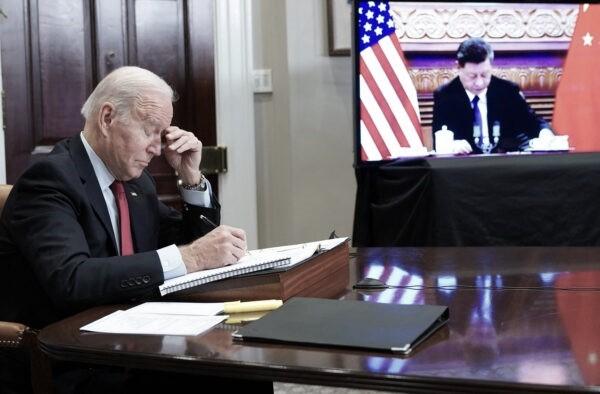President Joe Biden’s warning to China against aiding Russia in its invasion of Ukraine was “soft,” and the administration has done little to deter Chinese aggression on the world stage, according to Rep. Greg Steube (R-Fla.).
“Biden is soft on China, just like he’s been with every one of our adversaries throughout his presidency. It doesn’t appear Biden’s talk has changed China’s stance one bit,” Steube, a member of the House Foreign Affairs Committee, told The Epoch Times.





